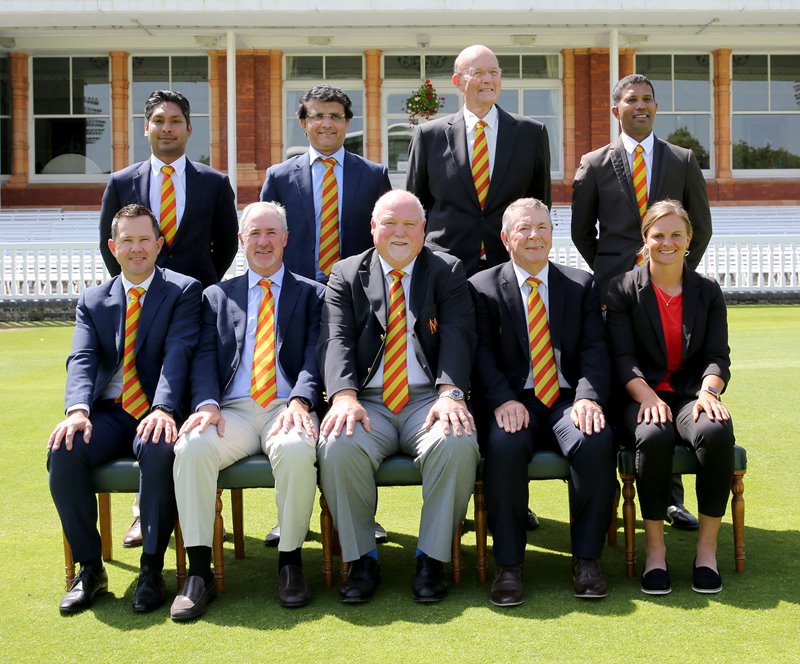We recently chatted with Lord's Indoor Cricket Centre Manager (and MCC Laws Manager) Fraser Stewart on the impact the Coronavirus pandemic may have on the game, and how the Lord's will adapt to the “new normal”.
Your job title is Lord’s Indoor Cricket Centre Manager, though your role is far more varied – what does a typical day look like for you?
I’m lucky enough to have a wide brief to my role, which means there isn’t really a typical day. I’m Manager of the Lord’s Indoor Cricket Centre, a role which I’ve held since 2011.
Since that time, we’ve grown the business, especially with our weekly coaching groups, to the extent that we now have 500 children each week coming to our classes. I’m fortunate to have a great team beneath me, who carry out most of the administration of this, but I’m still involved in the strategy and ideas for new ventures, such as the introduction of Walking Cricket, which we were about to launch before the Covid-19 outbreak.
Where possible, I like to watch a bit of the coaching and to see the kids enjoying themselves. It’s also a good chance to get feedback from parents.
I’m also Manager of the Laws of Cricket, which I’ve done since 2007. The work around the Laws goes in peaks and troughs, with busier times around committee meetings and during Laws re-drafts. The drafting of the 2017 Code was incredibly time-consuming.
Then there are the “drop everything” moments, when a Laws-related incident occurs in a high-profile game and my phone starts buzzing with emails and texts from journalists, which often result in media interviews. Sometimes, such as when Kevin Pietersen first played the switch-hit, the Laws sub-committee needs to be hastily convened to discuss the finer points of Law before MCC offers an official judgement.
Through my role with the Laws, I act as the administrator for MCC’s World Cricket committee – a body of highly skilled former and current players who meet twice a year to discuss all kinds of issues affecting the game. This work is fascinating and requires a lot of research into a range of areas, preparing detailed meeting papers, arranging all the logistics for the members and then contributing at the meetings. The build-up to the meetings, and the meetings themselves, are very hectic but it’s a hugely enjoyable part of the job – and indeed a privilege to be able to work with a group of such talented people.

The pandemic prevented us having a meeting in Sri Lanka in March, so the group hasn’t met in person since last August. This week, however, we had a meeting on Zoom, which worked pretty well.
Until June this year, I also ran the MCC Universities scheme. MCC took over this scheme from ECB in September 2004 – the very same week that I began working at MCC – and the MCCUs have been under my watch the whole time. It’s such a fantastic scheme, giving young men and women the chance of furthering their cricket careers whilst continuing their education.
We’ve seen many county and international players come through the six centres, including Monty Panesar, Sam Billings, Rory Burns, Jack Leach, Zafar Ansari, Toby Roland-Jones and indeed a high proportion of the England Women’s team including Heather Knight, Natalie Sciver and Fran Wilson. MCC ceased funding the scheme in June, but I’m still working with the Centres and ECB to aid the transition.
What role does MCC play in regards to the Laws of Cricket?
MCC has written and acted as the custodian of the Laws of Cricket since 1788 and, whilst national and global cricket governance has moved away from MCC, the Club has retained its ownership of the Laws.
MCC’s Laws are the framework for every game of cricket played, at all levels, across the world. Leagues and Governing Bodies will write playing conditions which will either augment the Laws (such as fielding restrictions, limit on overs per bowler), or alter them (such as ICC not allowing runners, or bouncers over head-height being a Wide rather than a No ball).
MCC’s role with the Laws is one that the Club takes very seriously. We work very closely with ICC and National Governing Bodies, consulting them over any proposed changes to the Laws, and assisting them with their own regulations.
MCC’s Assistant Secretary (Cricket), John Stephenson, sits on the ICC Cricket committee, whilst our World Cricket committee also ensure that our debates on the Laws have a global input.
MCC’s Laws sub-committee comprises people with a range of experiences, but with a shared deep knowledge and passion for the Laws and for cricket. Former International umpires Simon Taufel and S Ravi lend knowledge of the top level of the game, while other members bring knowledge of cricket at county, recreational, women’s and junior cricket.
Our key role is to ensure that the Laws are relevant for all levels of the game, and are able to be implemented by two umpires without recourse to any replays or technology.
MCC has produced a range of training materials to assist those wanting to learn the Laws. These include animations narrated by Stephen Fry (and translated into Urdu and Hindi), a Laws of Cricket app, an eLearning site with exams and finally the textbook “Tom Smith’s Cricket Umpiring & Scoring”, which is seen as the authority for interpretations on the Laws.

Will the Coronavirus pandemic have an impact on the Laws of Cricket and the game in general i.e. formats etc.?
We have worked with ICC and ECB on their playing regulations, the most relevant being the ban on the use of saliva to polish the ball. We have not changed the Law, however, and so the rule is being enforced by playing conditions.
We have also had to discuss the implications of intentional breaches of physical distancing, such as players squaring up to each other and even spitting at someone, which is even worse in Covid times than normal.
From limited evidence of the recent England v West Indies Test series, the ban on the use of saliva on the ball did not seem to tip the balance of the game too far in favour of the batsmen, which was good to see.
Lord’s Indoor Cricket Centre is often described as one of the best cricket facilities in the world. Why is this and how do you think the activities and services provided will change as we adapt to the “new normal”?
Yes, we’re lucky to have a state-of-the-art Centre, with 8 nets. We have a range of users, but typically it’s lots of children’s coaching courses (we have 500 children per week), club cricketers having nets or receiving coaching, corporate functions where they play indoor matches followed by food & drink in our bar area, children’s birthday parties and, in the last few years, plenty of school groups from countries like France and Italy who come for initiation sessions on cricket.
We have Hawk-Eye and PitchVision technologies, which mean we can analyse bowlers and batsmen in great detail. Bowlers especially always love to know how fast they can bowl, and seeing their deliveries shown through Hawk-Eye with the Lord’s Pavilion as the backdrop is a big thrill for them. We also use Hawk-Eye to train umpires with their LBWs.
Here’s what happened when Stephen Fry tried his hand at umpiring.
Sadly we’ve been closed since 17th March but we’re working hard to re-open in the coming weeks. We plan to use alternate nets, to limit our numbers, stagger our start times to avoid pinch-points when everyone arrives and leaves and obviously augment our cleaning routines.
People are now used to one-way systems, physical distancing and additional hygiene routines, so we’re hopeful that the steps we’ll put in place make it a safe place to come to play cricket
How have you maintained the team’s morale while they’ve been away from the Ground and the centre closed?
All of my staff have been on furlough, meaning they can’t work, but we have kept in touch with optional Zoom calls with the Indoor Centre team most weeks and the entire Cricket department every fortnight. It’s nice to see everyone and hear what they’ve been up to. I’ll keep them updated with what’s happening at Lord’s and in cricket in general.
We also have a WhatsApp group which keeps us connected. It’s not the same as being together, but the technology these days has enabled us stay in touch. I sometimes wonder how differently businesses would have coped with this pandemic thirty years ago. We’re very fortunate that communication is now so easy and instant, which has made home-working relatively straightforward.
Outside of work, what have you been doing during this extended period away from Lord’s?
I’ve got two daughters aged 12 & 10, who haven’t been to school since March. Fortunately my wife is a teacher/tutor, so she has borne the brunt of the home-schooling, although I’ve helped with French and PE – one week the PE was cricket, which included a worksheet on the Laws and having to video their bowling – no excuses for me not to help there!
I’m vice-chairman of my local cricket club, where I run the girls’ section, so I’ve been working with them on all their re-opening plans. It’s lovely to see people back playing, and there’s a real enthusiasm for it. I played my first game last weekend, which was great fun.
Before we even knew about Covid, I signed up for a virtual walk from John O’Groats to Land’s End for Sir Ian Botham’s charity. I have to walk 985 miles in 3.5 months, which is around 10 miles per day. So I’ve been out pounding the footpaths around where we live, normally doing around 10,000 steps before breakfast, then another 10,000 in the evening.
We’re heading to Cornwall for a few days in mid-August, so I’ll finish the walk actually at Land’s End itself, which will give it all some context. Physically, the walk hasn’t been that hard, but it’s the time commitment that’s been the problem, particularly with the home-schooling and my wife also working. Some evenings, I’m out walking well after dark to get the steps in. “Beefy’s Charity Foundation” will split the money between seven charities, so it’s all in a very good cause.